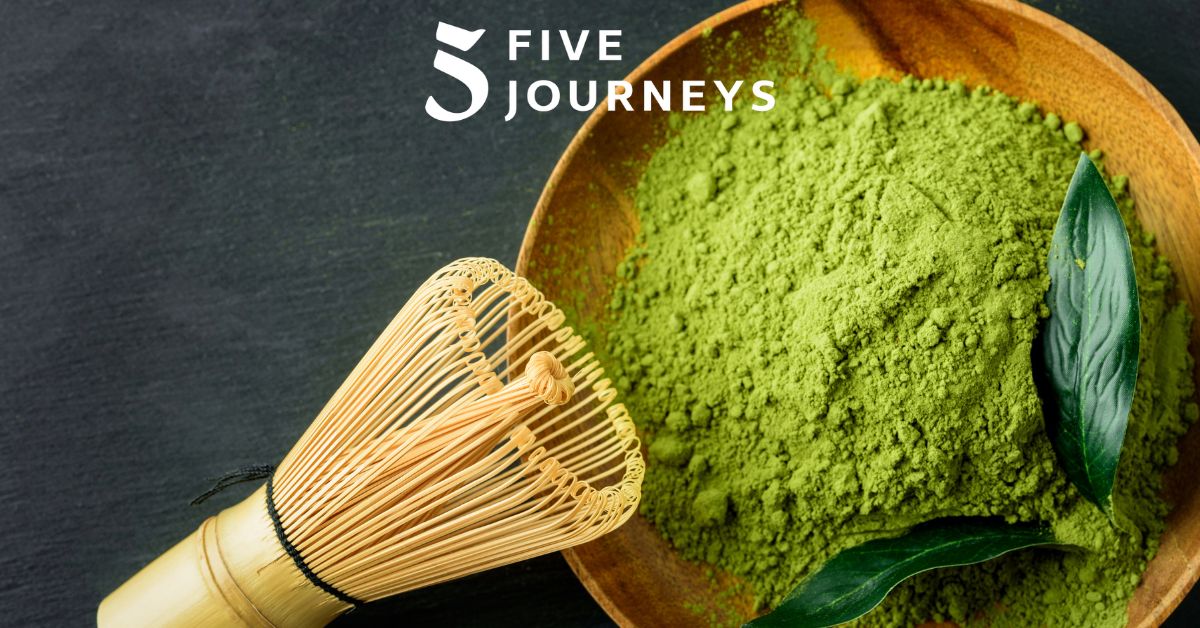

Could the vibrant green of matcha tea hold a key to soothing the hidden fires within your body? Inflammation, often an unseen player in our daily discomfort, is prompting many to seek nature’s gentle yet potent allies.
Enter matcha, a vibrant green tea powder that has been valued for centuries, not just for its unique flavor and energizing properties but also for its potential health benefits, particularly in relation to inflammation. Let’s examine why Matcha tea and inflammation are increasingly linked and consider if incorporating this potent brew is good for you.
Evidence suggests that Matcha tea and inflammation may be connected due to matcha’s rich composition of various beneficial compounds. One of the most notable is Epigallocatechin gallate (EGCG), a prominent catechin and antioxidant that is present in greater amounts in matcha compared to traditional Green tea vs matcha.
Here’s why matcha may be a valuable ally in supporting a healthy inflammatory response:
By neutralizing free radicals, EGCG in matcha helps protect cells from damage. This is important because free radical damage contributes to oxidative stress, a key driver of chronic inflammation. Reducing oxidative stress can help lower the overall inflammatory burden in the body, potentially easing symptoms of inflammatory conditions and supporting long-term health
A balanced immune system responds appropriately to threats without overreacting and causing chronic inflammation. The compounds in matcha may help regulate immune cells and signaling molecules. This can lead to a more resilient immune system that is better equipped to fight off infections without triggering excessive or prolonged inflammation.
Inflammatory markers are substances in the body that increase during inflammation. By potentially affecting their production, matcha’s compounds might help to modulate the inflammatory response. This could translate to reduced levels of inflammation throughout the body, potentially alleviating pain, swelling, and other symptoms associated with inflammatory conditions. While more research is ongoing, this suggests a direct way matcha could help manage inflammation.
While not directly anti-inflammatory, L-theanine’s ability to promote relaxation and reduce stress is significant. Stress is a well-known trigger and exacerbator of inflammation. By helping to manage stress levels, matcha can indirectly support a healthy inflammatory response. Additionally, the calm focus provided by L-theanine can improve overall well-being, making it easier to adopt other healthy habits that further support the body’s natural balance.
The method of consuming matcha—by ingesting the entire leaf powder—results in a higher intake of these advantageous compounds, including EGCG, when compared to standard green tea infusions, making the potential Matcha tea and inflammation relationship more pronounced.
While matcha offers numerous potential health advantages, including its anti-inflammatory properties, moderation is generally advised. Most studies and expert guidance suggest that consuming 1 to 2 teaspoons of matcha powder per day is a safe and potentially advantageous amount for most adults.
Here are a few points to consider regarding daily matcha intake:
Matcha contains caffeine, though typically less than coffee. A teaspoon of matcha can contain between 30 to 70 mg of caffeine. If you have a sensitivity to caffeine, it is advisable to consume matcha earlier in the day and observe your body’s reaction.
While EGCG is beneficial, very high intakes could potentially cause adverse effects in some individuals. Adhering to the suggested 1-2 teaspoons generally keeps EGCG intake within a safe range.
As with any dietary component, individual reactions can vary. Begin with a smaller quantity (e.g., ½ teaspoon) to assess your body’s response.
Opt for high-quality, ceremonial or premium grade matcha, as these tend to be richer in beneficial compounds and free from additives.
Incorporating matcha into your daily routine can be a simple and pleasant way to potentially support your body’s natural balance and overall well-being. Whether enjoyed as a warm latte, a refreshing iced tea, or added to smoothies, matcha offers a vibrant and flavorful means to consider its many potential health advantages.
The vibrant emerald powder of matcha tea offers more than just a delightful flavor and gentle energy boost. Matcha presents a promising natural avenue for supporting your body’s response to inflammation. From its potent antioxidant activity to its potential influence on immune balance, incorporating this ancient brew into your daily routine could be a simple yet powerful step towards greater well-being. Consider exploring the soothing and supportive properties of matcha as part of your holistic health journey.
Kochman, J., Jakubczyk, K., Antoniewicz, J., Mruk, H., & Janda, K. (2021). Health Benefits and Chemical Composition of Matcha Green Tea: A Review. Molecules, 26(1), 85. https://doi.org/10.3390/molecules26010085
Get free shipping.
Free Shipping
5% Discount


At home.
Blood and Urine
$179 – $439
Depending on insurance coverage.


This is a comprehensive stool test that relies on quantitative polymerase chain
reaction (qPCR) technology to detect parasites, bacteria, H. pylori, fungi, and more by targeting the specific DNA of the organisms tested. Click here for more information.
At home.
Stool
$399
Depending on insurance coverage.


At home.
Urine
$129
Depending on insurance coverage.


At home.
Swab
$299
Depending on insurance coverage.


At home or in lab.
Blood
$999
Depending on insurance coverage.


At home.
Blood, Urine, or Ticks
may have a $200 copay
Covered by most insurance.


At home.
Urine
$300
Depending on insurance coverage.


At home.
Urine
$199
Depending on insurance coverage.


This test evaluates the genetic profile for multiple health indicators. Click here for more information.
At home
Blood Spot


At Home
Urine
$699
Fully covered by Medicare. Repeat test prices $249


$85-$225 depending on insurance coverage.




This company can test for lyme, babesia, bartonella and additional tick-borne illnesses. Click here for more information.
Blood
around $1600 (depends on panel selected)


This test is designed to look at food sensitivities (IgG immune responses). It is available in both a 99 or 184 panel. Click here for more information.
Blood
$129-238


No insurance coverage


Blood




This test evaluates the gut function and indicates microbiome balance, overgrowth, infection, inflammation, parasites and digestive efficacy. Click here for more information.
$179-$439 depending on insurance coverage.


This test evaluates many measures including micronutrients, antioxidants, minerals, detox, overview of gut function, omegas and toxic exposure. Click here for more information.
At home.
Urine
$150 – $329


Blood work for blood count, urinalysis and vitamin levels.
At any Quest Diagnostics Location
Blood
You often have to fast for these tests-please check your providers notes.




$310